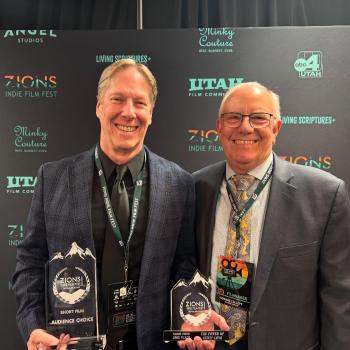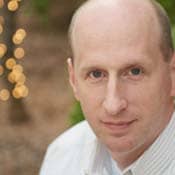Since 9/11, Westerners have tried two approaches to fight terrorism in Pakistan, President Bush's and Greg Mortensen's.
Thus began a column in The New York Times by Nicholas Kristof in July 2008. I remember the column distinctly because I was, at that time, fighting terrorism according to the George Bush approach, serving with the Third Armored Cavalry regiment in Diyala Province as part of the signature Bush policy effort of the war, the Surge. A friend forwarded the Kristof article, and I was intrigued.
Who was this Greg Mortensen? What's his approach?
I read on:
Mr. Mortenson, a frumpy, genial man from Montana . . . has spent less than one-ten-thousandth as much as the Bush administration. He builds schools in isolated parts of Pakistan and Afghanistan, working closely with Muslim clerics and even praying with them at times.
The only thing that Mr. Mortenson blows up are boulders that fall onto remote roads and block access to his schools.
He builds schools. Good for him. But I knew that his efforts—no matter how admirable (and admirable they certainly are)—were but a tiny drop of hope and decency in the oceans of oppression, violence, and misery that are the jihadist-dominated regions of Southwest Asia. I was glad for his work, but that's an approach to fighting terrorism? An approach to rival our massive, ongoing military efforts in Iraq, Afghanistan, and Pakistan?
According to Kristof, Mortensen offered more than "an approach." He offered "the approach," one far superior to anything we were doing in the Surge. Kristof concluded:
So a lone Montanan staying at the cheapest guest houses has done more to advance U.S. interests in the region than the entire military and foreign policy apparatus of the Bush administration.
I literally laughed out loud. I gave no further thought to Mortensen, and we just kept doing our job: clearing al Qaeda from our corner of Iraq, having our own "cups of tea" with tribal elders, local police, ordinary villagers—so much tea, in fact, that I get nauseous at the very thought of the word chai.
But tea wasn't enough. Nor were schools or roads or power stations or our other nation-building efforts; they weren't enough until al Qaeda was beaten, until they no longer had the strength to behead villagers who cooperated with our efforts, until they no longer could terrorize mothers by shooting their babies right in front of them, or until they could no longer clear out the schools or power stations or government offices (or anything else we built) and use them as weapons depots and safe houses, or simply vandalize them, leaving their shattered emptiness as a symbol of their power, not ours.
When I got home in late 2008, I learned that Greg Mortensen was a bigger deal than I had realized. The military made his books mandatory reading. He spoke to tens of thousands, and even the President of the United States donated to his charity. In the midst of a long and bloody war, his story of cultural understanding, patience, tea, and education resonated. Did Greg Mortensen really offer a better way?
Less than two weeks ago, the whole story unraveled. John Krakauer and "60 Minutes" discovered that key elements of Mortensen's compelling life story were fabricated. Worse, they discovered that his charitable efforts were far less extensive than advertised. Many of his schools were empty, some didn't exist, and the overall footprint of his efforts was a fraction of what we believed. He wasn't a total fraud (he has done much good in the lives of the students he served), but he and his charity were not what we thought they were.
In the immediate aftermath of the "60 Minutes" story, the question came: Why? Why did a man who'd done such great good so exaggerate his story and his efforts? Wasn't the truth enough for him?
But that's actually a less interesting question than its reverse. After all, he simply joins a long line of public figures who have exaggerated their accomplishments. Greed and pride are the oldest of sins. The real question is, Why did we believe him? Why was his exaggerated story so eagerly embraced by the public and even by military leaders? Why did people actually believe so quickly and uncritically that he'd made so much progress in a war-torn region characterized more by medieval barbarism than by any kind of recognizable love of learning?
I think the answer is theological. We've lost any real understanding of evil and depravity. Cultural relativism teaches us that conflict is a result not of significant moral differences but of misunderstandings. Postmodern anti-colonialism teaches us that the West is the root of all that ails the world; that virtuous indigenous cultures would flourish without our oppression and militarism. Well-meaning, idealistic (but biblically ignorant) Christians believe that just a little kindness and love will transform hearts and minds on a vast scale. "If only they can see how nice we are, how much we care, then their hearts will melt."





